Last updated on March 10th, 2020
Louis Pasteur was a French biologist, microbiologist, and chemist. He is best known for the discovery of the principals of pasteurization, microbial fermentation, and vaccination.[1] With these 49 facts about Louis Pasteur, let us learn more about his early life, family, education, work, inventions, patents, and accomplishments.
About his childhood and early life
1. Louis Pasteur was born in Dole, France to Jean-Joseph Pasteur and his wife Jeanne-Etiennette Roqui on December 27, 1822. Two of his younger sisters died at the age of 25 and 26.[1]
2. Louis Pasteur’s father frequently said to him “if only you could become someday professor in the College of Arbois I should be the happiest man on earth.” His parents were concerned with providing him a good education and they always said: “we will make of him an educated man.”[12]
3. During his childhood, Louis had a peculiar interest in fishing, painting, and sketching.[1,2]
4. Pasteur on his way back to home from college would conduct, with his friends, fishing parties. These parties were so pleasant that they continued for many years to come. Pasteur also made large portraits of neighbors, male and female. Some of these portraits are still available in the houses of Arbois, all bearing his signature.[12]
5. He got admission in an elementary school in Arbois in 1831.[1]
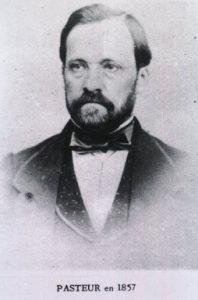
6. The principal of the college who followed and watched this little kid (Pasteur) used to say “He will go far. It is not for the chair of a small college like ours that we must prepare him; he must become a professor in a royal college.”[12]
7. Pasteur’s interest in chemistry was so profound that Pasteur used to ask his chemistry professor, Darley, many questions regarding the subject. However, the puzzled professor would declare that it was for him to interrogate Pasteur and not for Pasteur to interrogate him.[12]
Marriage and family
8. He met his wife Marie Laurent (daughter of the university’s rector) in 1849 at the University of Strasbourg, where he was a professor of Chemistry.[1]
9. Louis Pasteur had five children. However, only two of these survived childhoods, the other three died of typhoid.[1]
10. After completing his degree, he was appointed a tutor at the same college. After failing in a degree science course in mathematics in 1841, he managed to pass general science degree in 1842 but in a mediocre grade. After a few years in 1845, he received a Master of Science degree. He also earned his doctorate in Science in 1847.[1]
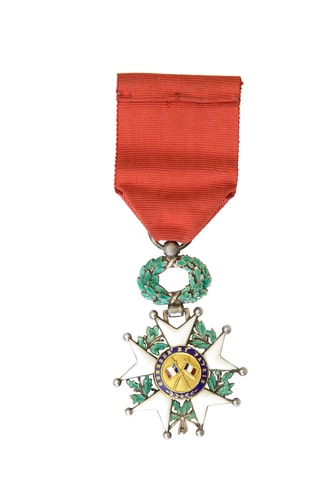
11. Some 30 institutes, a large number of schools, hospitals, buildings, and streets bear his name. Louis also earned France’s highest decoration, the Legion of Honour. In fact, Louis Pasteur’s father who was a tanner and a sergeant major was also decorated with the Legion of Honour during the Napoleonic Wars.[1,5]
Known for/accomplishments
12. He is best known for his food preparing process known as pasteurization. He invented the process of pasteurization in 1864.[11] The process of pasteurization treats milk and wine to stop bacterial contamination.[5]
13. He is also credited with the development of the first vaccine for rabies and anthrax.[1]
14. Louis Pasteur is also popularly known as the “father of microbiology”.[3]
15. He is also known as one of the fathers of “germ theory.” He demonstrated that bacteria grew in sterilized but open flask, whereas in sterilized and sealed flasks, nothing ever developed.[1,2,5]
16. In 1877, he put forward the ‘germ theory’ of disease.[11]
17. Once he was convinced that bacteria were responsible for the souring of milk, wine, and beer, he wanted to remove bacteria from these items. The first test on boiling milk and then cooling it to avoid the growth of bacteria in it was made on April 20, 1862. And he succeeded in his attempt to stop the growth of bacteria in these products.[6]
18. An interesting point in the life of Louis came when he came across the discovery of the German Chemist Eilhardt Mitscherlich who showed that tartrates and paratartrates behaved differently towards the polarized light. Tartrates rotated the plane of polarized light while paratartrates did not. However, these two compounds displayed identical chemical properties.[1]
Education and further work
19. In 1840, he obtained B.A. from College of Royal de Besancon.[11]
20. The Royal college paid him twenty-four francs a month, in addition to his food and lodging.[12]
21. He also proved that microorganisms come from other microorganisms and not from spontaneous generation.[1]
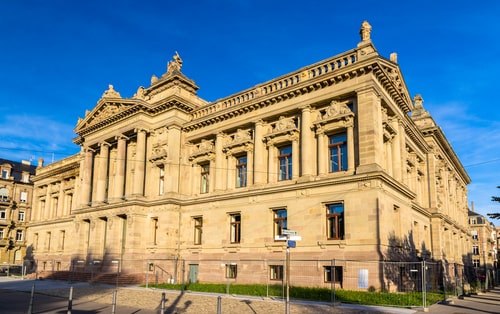
22. In 1848, he became the professor of chemistry at the University of Strasbourg.[7]
23. In 1857, he became the director of scientific studies at École Normale Supérieure and resigned from his duties in 1867.[1]
24. In 1857, he was able to demonstrate the formation of Lactic acid in milk and butter.[11]
25. Louis Pasteur received numerous awards during his life including the prestigious Rumford Medal and Copley Medal awarded by the Royal Society.[5]
26. Pasteur studied the ability of organic compounds to rotate the plane of polarized light. After his study, he concluded that asymmetry was one of the fundamental characteristics of living matter.[1]
27. Pasteur Effect: the fermentation process could be arrested by passing air through the fermenting fluid. He said that there is a life form which could only function in the presence of oxygen. This important conclusion from Louis Pasteur also led to the introduction of the terms, ‘aerobic and anaerobic’.[1]
28. Pasteurization, the process of heating at around 57 degree Celsius for a few minutes, is named after Louis Pasteur.[9]
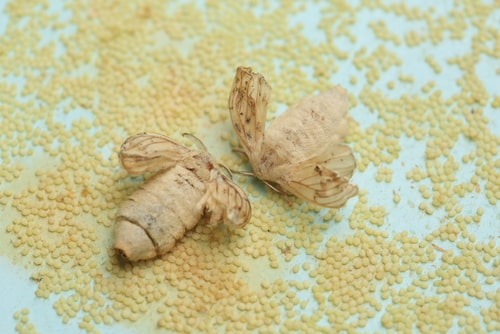
29. Silkworm eggs could no longer be produced in France and they could also not import the eggs from other countries because the disease spread all over. Louis Pasteur was requested to study the disease. He soon started investing his time and became an expert breeder and identified the disease affecting silkworms. It took him 5 years to identify and provide solutions to prevent further the contamination of the silkworm eggs by the disease-causing organisms.[1]
30. In 1873, he was elected as an associate member of Academie de Medecine.[6]
31. His first important discovery in vaccination happened in 1879 when he was able to find a solution for chicken cholera.[1]
32. Louis Pasture’s discovery led to the understanding of microbes and diseases. Pasteur Institute is the world’s leader in battling infectious diseases.[2]
33. Did you ever wonder why surgical instruments are boiled before use? It is because there are microorganisms that are sitting on these instruments which can cause infection in the body of the individual when operated with these instruments without washing them. The washing of these instruments is a direct result of Louis Pasteurs’ discovery of the microbe and how these tiny organisms can cause infections.[2,4]
34. Louis Pasteur was an effective observer. He himself once stated: “chance only favors the prepared mind.”[1,2]
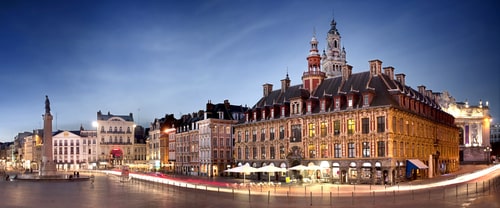
35. In 1854 at the age of 32, he became the dean of the faculty of science at the University of Lille.[1,4]
. . . continue reading on the next page
